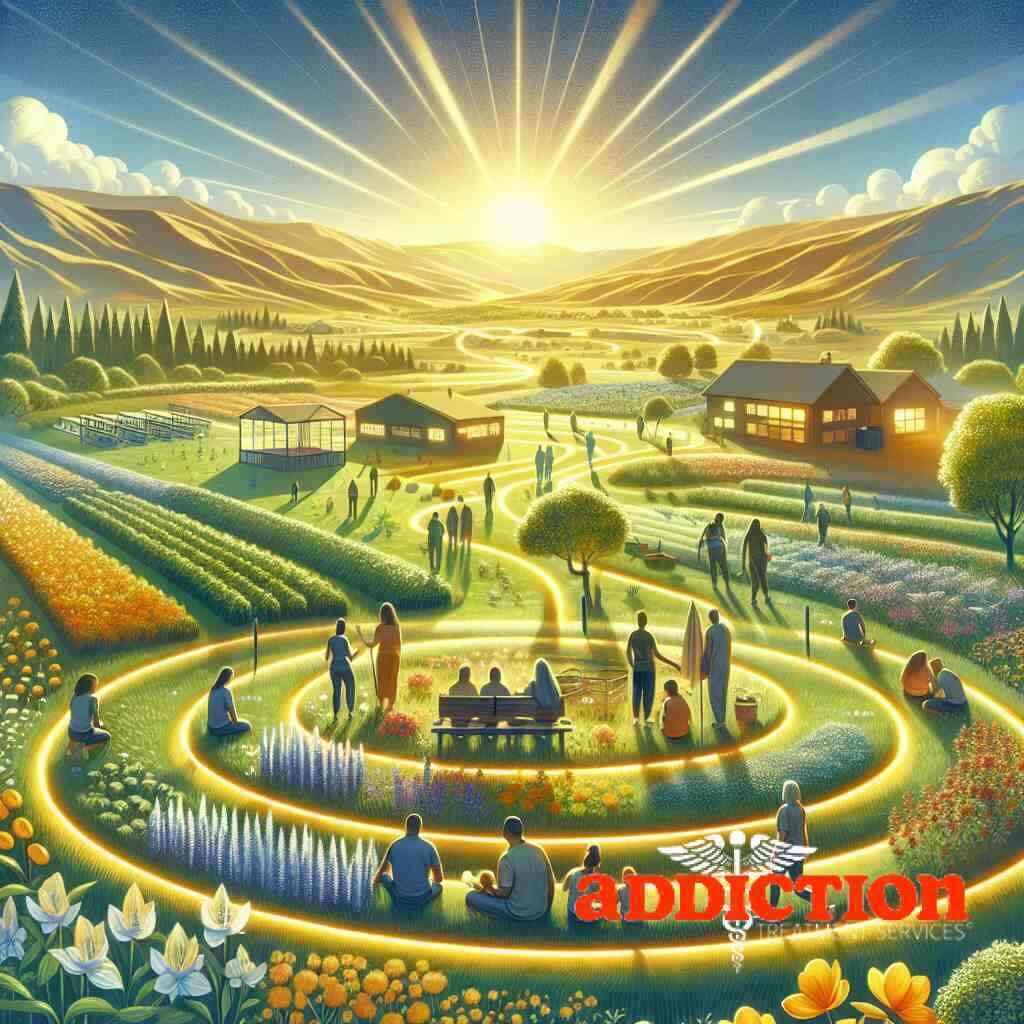 Posted On: 10/14/2025
Posted On: 10/14/2025Awakening to Recovery
The Transition from Treatment to Sober Living
Transitioning from a rehabilitation facility to a sober living community is a crucial stage in addiction recovery. This move helps bridge the gap between intensive treatment programs and independent living, offering a supportive environment conducive to healing. During this phase, individuals focus on maintaining sobriety and managing withdrawal symptoms, often relying on the steady routine that sober living homes provide. Emphasizing discipline, structured sober living programs ensure residents adhere to essential daily activities, reinforcing behaviors that reduce the risk of relapse. Participants often find that the accountability in recovery cultivated through this transitional period is invaluable as they forge new, substance-free lifestyles.
The benefits of sober living transitions extend beyond routine and discipline. Sober living houses instill a sense of responsibility and independence in residents. Here, individuals learn to navigate daily life while remaining committed to their recovery goals, fostering long-term sobriety. Furthermore, individuals experience a supportive community where peers share similar goals, experiences, and struggles, creating a network of empathy and understanding. This transition builds a strong foundation for sustainable sobriety and inspires hope for a fulfilling life beyond addiction.
Why Local Sober Living Communities Matter
Local sober living communities play a significant role in nurturing successful recovery journeys. These communities provide an environment that shields individuals from the triggers and influences that could hinder their progress. By staying within a familiar locality, members of sober living communities remain connected to their family support systems, which amplifies the impact of sober living on family relations. The collective sense of community fosters a shared purpose, encouraging members to participate actively in sober community activities that reinforce their commitment to recovery.
Choosing a local sober living community also enables easy access to addiction recovery support services available in the area. This proximity ensures individuals can attend therapy sessions and recovery meetings such as AA and NA, which are essential for maintaining sobriety. Moreover, local familiarity can ease the anxiety of this transitional phase by removing the stress associated with adapting to a new environment. As participants embrace these tailored support systems, they are better equipped to achieve a substance-free lifestyle and integrate smoothly into society.
Exploring Addiction Treatment Services Near You
Finding the right addiction treatment services near you requires thorough exploration and evaluation. Resources like Addiction Treatment Services simplify this search by offering a comprehensive directory of trusted addiction treatment centers across all 50 U.S. states. This directory helps individuals find appropriate care that aligns with their needs, whether seeking outpatient treatment, residential treatment, or intensive outpatient programs. By facilitating access to local addiction recovery resources in California, individuals can make informed, strategic decisions as they pursue their recovery journey.
Exploring treatment facilities within reach ensures continuous support throughout the recovery process. Many centers offer specialized programs like dual diagnosis treatment and medication-assisted treatment, which address the specific complexities of addiction. By leveraging these resources, individuals can embark on an informed path towards recovery, enriched with tailored support that meets their unique circumstances. Ultimately, the collaborative efforts between treatment services and sober living communities empower individuals to embrace life beyond addiction, achieving holistic transformation and enduring sobriety.
The Framework of Sobriety: Inside Sober Living Communities
The Structure and Discipline of Transitional Living Programs
Transitional living programs serve as the bedrock of recovery housing, offering a structured environment crucial for individuals emerging from the grips of addiction. These programs emphasize routine and responsibility, key components in fostering sobriety. Each day is carefully organized, incorporating therapeutic activities, household tasks, and community engagements, ensuring that participants have a clear focus and purpose. Such a structure mitigates the chaos that often accompanies early recovery stages by reducing idle time, a notorious trigger for relapse.
Moreover, the disciplined nature of these programs reinforces the importance of sustained commitment to recovery. By adhering to a daily schedule, residents develop discipline and resilience, vital attributes for long-term sobriety. These structured sober living programs in Georgia, for example, illustrate how well-implemented frameworks can significantly boost recovery outcomes. The balance between autonomy and regimented living in transitional housing prepares participants for the challenges they’ll face outside, building a solid foundation for drug-free living spaces.
How Sober Living Home Rules Foster Accountability in Recovery
Sober living home rules are pivotal in establishing accountability among residents. These rules are not mere restrictions; they are essential guidelines that promote a recovery-focused environment. Residents must adhere to curfews, participate in chores, and attend mandatory meetings, fostering personal accountability and mutual respect. Such requirements cultivate a sense of responsibility, teaching individuals to uphold commitments and manage their time effectively.
The consistent enforcement of these rules creates a culture of trust and integrity, where everyone is dedicated to maintaining sobriety. Regular drug testing and attendance at support meetings further add layers of accountability, deterring residents from falling back into old habits. Through such frameworks, participants learn the significance of living with integrity and relying on a structured system to overcome challenges. Exploring the role of mental health in recovery alongside these rules can also amplify efforts by ensuring comprehensive support for holistic healing.
Peer Support Recovery: Building Connections for Sustainable Sobriety
In sober living communities, peer support recovery stands out as a critical element for sustainable sobriety. These communities thrive on the bonds formed between residents, offering a network of encouragement and understanding. Participants share experiences and coping strategies, recognizing that they are not alone in their struggles. Such interactions foster empathy and camaraderie, creating supportive connections that mimic family dynamics.
The strength derived from peer recovery support in Georgia, for instance, showcases how these relationships significantly impact the recovery journey. By actively engaging with peers, individuals build resilience and motivation to maintain their substance-free lifestyle. Collaborative problem-solving and shared accountability fortify each person’s commitment to sobriety, reducing feelings of isolation and promoting a healthier community fabric. These supportive networks are invaluable, providing emotional and practical assistance crucial for sustained recovery, reinforcing the essence of community-based recovery efforts.

Pillars of Transformation: Benefits of Sober Living
Creating a Recovery-Focused Environment for Lasting Change
Sober living homes create an environment that fosters recovery-focused living, essential for sustainable transformation. These communities are deliberately designed to minimize distractions and triggers, encouraging individuals to maintain sobriety. Residents engage in planned activities and routines, which nurture self-discipline and provide a sense of stability. Essential aspects, such as maintaining daily schedules and goal-setting, are emphasized to cultivate lasting sobriety.
Within these environments, the importance of accountability is ever-present. The structured support offered by sober living homes is a beacon for those seeking a lasting recovery from substance use disorders. By immersing themselves in a recovery-focused atmosphere, residents develop skills crucial for enduring change. The community-oriented setting reinforces positive habits and mindsets, empowering individuals to create and maintain a fulfilling, substance-free lifestyle.
Community-Based Recovery: Activities and Support Systems
Community-based recovery is the backbone of effective sober living communities, offering a network of activities and support systems that reinforce sobriety. Sober community activities foster a sense of belonging, reducing isolation-a common challenge in early recovery stages. These activities provide opportunities for personal growth and social interaction, vital for building self-esteem and resilience in recovery housing.
Participating in communal events helps residents connect with like-minded peers, collaboratively navigating their recovery journey. Support systems often include group therapy sessions, workshops, and recreational outings, which are essential for strengthening emotional and social resilience. This collective approach aids in nurturing not only personal well-being but also supportive bonds with others, instrumental in achieving long-term sobriety.
In such communities, the power of shared experiences is harnessed effectively. Individuals gain insights from others’ journeys, learning strategies to cope with challenges. These support networks are instrumental in solidifying recovery efforts, ensuring that sobriety is not just a temporary state but a lifestyle choice.
The Financial Aspect: Understanding Sober Living Expenses
Understanding the financial aspect of sober living is crucial for individuals planning their recovery journey. Unlike traditional rehabilitation facilities, sober living provides a cost-effective option that bridges the gap to independent living. Expenses generally cover room and board, utilities, and access to community resources, offering a practical financial model for those committed to recovery.
Financial planning for sober living often involves considering subsidies or assistance programs available for addiction recovery support in New York and other states. Communities also offer budget training, equipping residents with skills to manage financial responsibilities post-treatment. This financial education is integral to ensuring individuals can sustain themselves independently, reducing the likelihood of relapse due to economic strain.
In conclusion, the strategic financial management within sober living communities ensures that individuals receive the support they need to maintain their recovery. By addressing and planning for the financial aspects of sober living, individuals are better prepared to transition into a fulfilling, independent lifestyle free from substance misuse.
Beyond Recovery: Designing a Substance-Free Life
Long-Term Recovery Planning and the Role of Mentorship
Long-term recovery planning is a critical component of maintaining sobriety beyond structured programs. This phase involves setting realistic, achievable goals that guide individuals on a path to sustained sobriety. Establishing a solid foundation with mentorship can greatly enhance this process, as mentors provide invaluable guidance and support that can help individuals navigate the complexities of life without substances. Mentorship fosters personal growth, accountability, and inspires hope, illustrating the transformative power of long-term recovery support in Minnesota.
Incorporating mentorship into recovery strategies encourages a more personalized approach to sobriety. Mentors, who often have firsthand experience with addiction, offer insights and coping strategies that resonate with individuals in recovery. This relationship provides a safe space to express struggles and celebrate milestones, reinforcing the commitment to a substance-free lifestyle. Through these interactions, individuals are empowered to remain focused on their recovery goals and continue building positive, healthy habits.
Maintaining Sobriety: The Importance of Substance-Free Lifestyles
Maintaining sobriety requires individuals to embrace a lifestyle that actively supports their recovery goals. This involves consciously choosing environments and activities that align with a substance-free philosophy, thus minimizing exposure to triggers and temptations. Engaging in activities that promote health and well-being, such as exercise and mindfulness practices, reinforces one’s commitment to sobriety.
Creating a recovery-focused environment is integral to avoiding relapse. Participating in sober community activities fosters social connections without the presence of substances, helping individuals develop a sense of belonging and purpose. As they engage in communal events, individuals are more likely to establish and maintain a fulfilling, substance-free life that thrives on positive influences. By continuously aligning daily habits with recovery-oriented goals, individuals enhance their resilience, ensuring a stable, sober future. The role of therapy in addiction recovery plays a crucial part in supporting these endeavors, offering professional guidance to cultivate enduring behavioral changes.
The Ripple Effect: How Sober Living Enhances Family and Community
The impact of sober living extends profoundly beyond the individual, progressively enhancing family and community dynamics. As individuals reclaim their lives through sobriety, they often mend relationships strained by addiction, fostering healthier family environments. This encourages family members to engage more actively in recovery processes, reinforcing the importance of family support in addiction recovery.
The positive influence of sober living communities is also felt in broader community settings. By participating in local initiatives and outreach programs, formerly addicted individuals contribute to a culture of empathy and support. This ripple effect often inspires others struggling with addiction to seek help, creating a community-oriented approach to recovery. As family and community members witness tangible changes, trust is gradually restored, leading to stronger communal bonds. Therefore, the philosophy and benefits of sober living ripple outwards, generating lasting change rooted in collective restoration.

Concluding the Journey: Integrating Back into Daily Life
Post-Rehab Living and the Path to Independence
The transition from rehab to independent living is a critical juncture in recovering from substance use disorders. This phase emphasizes the importance of structured sober living programs in Georgia, which offer a structured environment vital for reinforcing disciplines learned during treatment. Individuals are encouraged to engage in daily tasks that foster independence while maintaining a connection to addiction recovery support networks.
As individuals navigate post-rehab living, they must confront and adapt to real-world challenges, reinforcing the skills acquired in sober living communities. Establishing a steady routine and utilizing community support resources helps prevent relapse and supports sustainable recovery. By building on the foundation laid during treatment, individuals can embark on an empowered journey toward self-sufficiency, ultimately transforming their recovery goals into a fulfilling, substance-free lifestyle.
The Future of Addiction Treatment Services and Sober Living
The future of addiction treatment is evolving with innovative approaches and emerging trends in sober living, such as the integration of technology and holistic wellness practices. Sober living innovations are paving the way for more personalized and effective recovery journeys, emphasizing comprehensive care that addresses physical, mental, and emotional well-being. This involves leveraging telehealth for remote support and integrating wellness practices like yoga and meditation into daily recovery routines.
Addiction Treatment Services continues to drive these advancements by offering comprehensive resources and directories that simplify access to quality care. As these innovations gain traction, recovery services can provide more tailored support, ensuring individuals have the tools necessary to thrive beyond addiction. The evolution in addiction treatment services underscores a hopeful future where technology and empathy converge to offer enhanced recovery pathways.
Embracing Life Beyond Addiction: A New Beginning
Embracing a life beyond addiction signifies a new beginning, wherein individuals find purpose and fulfillment without substances. This transformation involves a commitment to fostering a substance-free lifestyle that celebrates personal growth and resilience. Community-based recovery activities play a crucial role, providing both social interaction and constructive outlets to explore new talents and passions.
Support systems are fundamental in helping individuals maintain the momentum gained in recovery. Engaging in ongoing therapy and peer support groups keeps individuals grounded and motivated as they build a future unbounded by addiction. This journey highlights the power of transformation, encouraging individuals to create a narrative where their past struggles serve as a foundation for success, resilience, and hope.
Ultimately, the journey beyond addiction is a testament to the resilience of the human spirit, where support from services like Addiction Treatment Services amplifies efforts to achieve lasting sobriety.
Frequently Asked Questions
Question: How do sober living communities near me support long-term recovery planning?
Answer: Sober living communities near you are instrumental in supporting long-term recovery planning by providing a structured and supportive environment essential for maintaining sobriety. These communities emphasize the importance of daily routines and accountability, which are crucial for preventing relapse and fostering a drug-free living space. By living among peers who share a commitment to sobriety, residents develop a recovery-focused lifestyle that prioritizes health and well-being. Addiction Treatment Services can guide you to local sober living houses that align with your recovery needs, ensuring that you have access to resources that aid in your long-term recovery goals.
Question: What role does accountability play in the recovery process within sober living communities?
Answer: Accountability is a cornerstone of the recovery process in sober living communities. These communities establish guidelines that all residents must adhere to, such as curfews, participation in chores, and mandatory attendance in group meetings. These rules foster a sense of personal responsibility and mutual respect, which is vital for sustainable sobriety. Addiction Treatment Services highlights the significance of accountability within these communities by connecting individuals to sober living programs that prioritize personal accountability and offer the structured support necessary for successful recovery housing.
Question: Can choosing a local sober living community enhance my family support during recovery?
Answer: Choosing a local sober living community significantly enhances family support during recovery. By staying close to home, individuals maintain connections with their family and friends, which strengthens family relationships essential for successful recovery. Addiction Treatment Services helps you find local sober living communities that not only provide a supportive peer environment but also facilitate family involvement in the recovery process, ensuring a more holistic approach to recovery. The proximity also allows for easier access to addiction recovery support services, further bolstering your network of care.
Question: How does the structure of transitional living programs assist in achieving a substance-free lifestyle?
Answer: The structure of transitional living programs plays a pivotal role in helping individuals achieve a substance-free lifestyle by instilling discipline and routine. These programs provide a high level of structure, incorporating therapeutic activities, household responsibilities, and community engagements into daily life. This regimen helps mitigate the chaos of early recovery, reducing the risk of relapse by keeping participants focused on their recovery goals. Addiction Treatment Services can guide you to structured sober living programs tailored to your circumstances, empowering you to embrace a sustainable and substance-free lifestyle.
Question: How does the blog How Sober Living Communities Enhance Recovery Near Me address the challenges of post-rehab living?
Answer: The blog How Sober Living Communities Enhance Recovery Near Me addresses the challenges of post-rehab living by exploring the significance of structured sober living programs in transitioning to independence. It discusses how these communities provide a supportive environment where individuals practice the disciplines learned in rehab while gradually taking on more responsibility. Addiction Treatment Services supports this transition by offering access to resources and directories of sober living communities designed to reinforce recovery efforts and prevent relapse, enabling you to thrive in your recovery journey.


